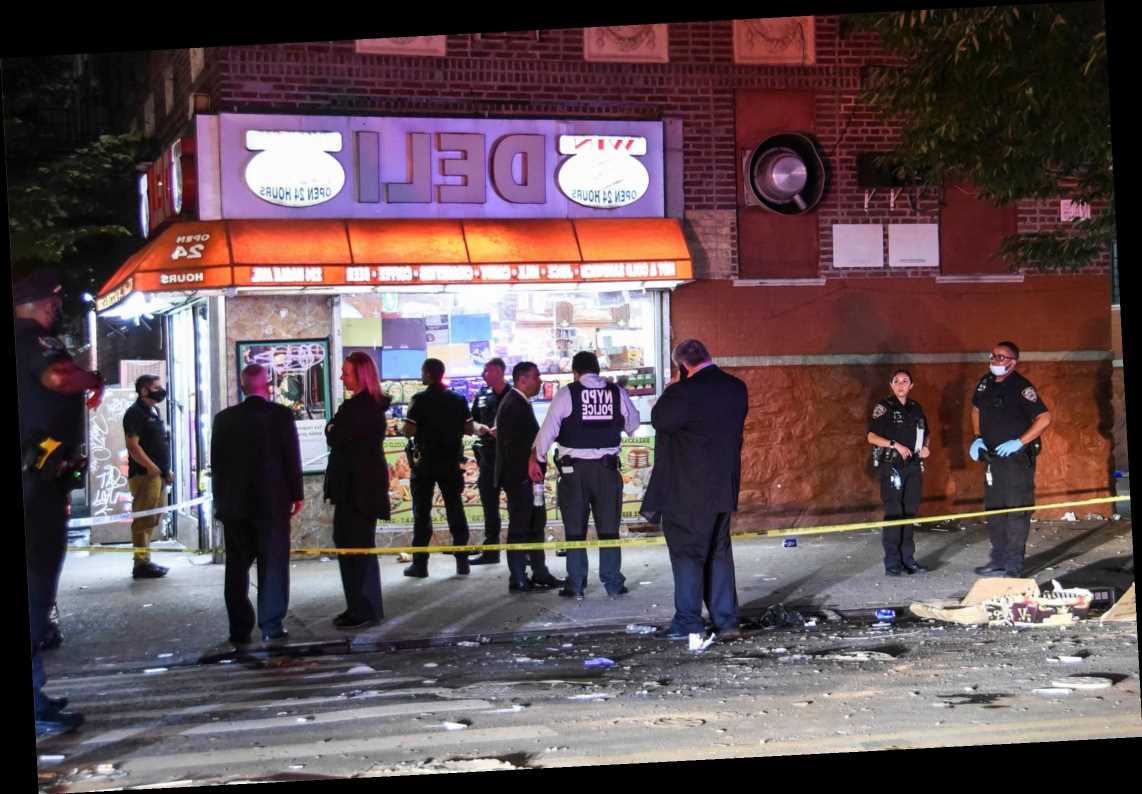Mayor Bill de Blasio largely blamed the coronavirus for the bloody weekend crime wave in the Big Apple — as the NYPD’s chief said the problem is much more complex, pointing to anti-police sentiment, bail reform and cops feeling they’ve had their hands tied as among the reasons for the sudden surge of violence.
This past Fourth of July weekend, “a lot of people out there, very peacefully celebrated our nation’s birthday…but we also saw too much violence this weekend,” de Blasio said during his daily City Hall press briefing as he said the city needs to “double down” on the recent spate of crime he called “worrisome.”
Nearly 50 people were shot — eight fatally — mostly in upper Manhattan and Harlem from Saturday through Sunday night. The shootings followed a record violent June in the city.
De Blasio said the uptick in shootings was “directly related to all this dislocation that we’ve seen over the last four months” in reference to the coronavirus pandemic.
Hizzoner blamed the city’s court system shutdown, people cooped up in their homes during the crisis and economic problems for causes behind the increase in crime.
“People have been pent up for months and months,” de Blasio said.
But NYPD Chief of Department Terence Monahan, at the same briefing, said that the coronavirus crisis and the shutdown of the courts system is only partly to blame for the crime increase. He also noted bail reform, animosity toward police in the wake of the George Floyd killing in Minneapolis and the bill recently passed by the City Council that will make it a criminal offense for cops to use chokeholds under any circumstance but also restricts other contact.
“It’s a combination of things — bail reform, COVID releases from prison, court shutdown, which has Rikers [Island] at half of where they were,” said Monahan.
The NYPD chief, in reference to the chokehold bill, said, “We mentioned this insane diaphragm law the City Council passed.”
“It has our cops hesitant to enforce some of these quality of life issues,” Monahan said, noting, “They are afraid if they’re making an arrest that if their knee goes on the back of someone that they are fighting their life for — that they could be prosecuted, that’s a problem.
“It makes our cops take that step back,” Monahan said.
He said the “chokehold portion” of the bill is not the issue.
“The issue we have is the compressing of the diaphragm — if you’re knee should go on someone’s back during the course of an arrest,” he said.
“Anyone who’s ever arrested anybody who’s fought and struggled knows that there’s a good chance that the knee may end up on someone’s back in the course of a struggle,” he said. “To criminalize that has the police officer concerned about whether or not he may be arrested for his knee going on the back.”
“It’s an issue that our cops are dealing with — very strongly, there is some great concern,” said Monahan.
Hizzoner went on to say that “to address” the violence “is not just one answer either.”
“Of course, it’s going to take neighborhood policing,” said de Blasio, who said it will also take efforts of “the clergy” and community groups like block associations.
“We’re going to need all hands on deck to address this issue,” he said.
Share this article:
Source: Read Full Article


